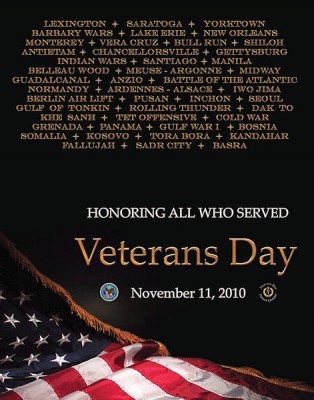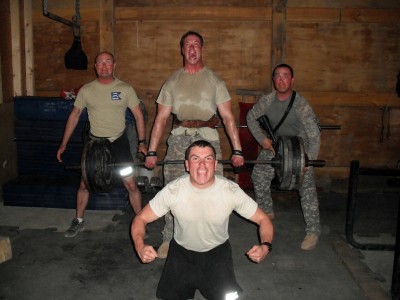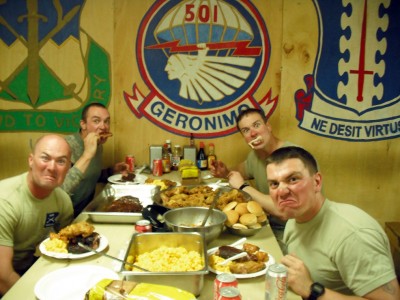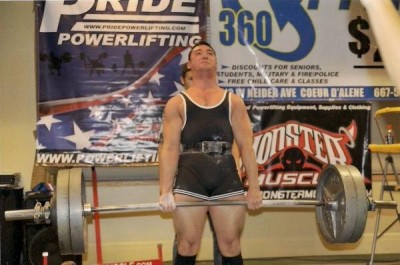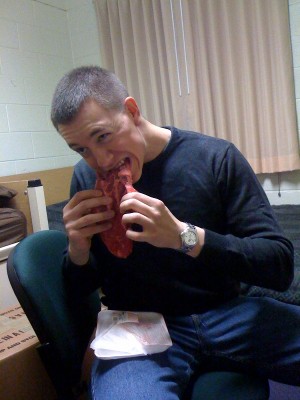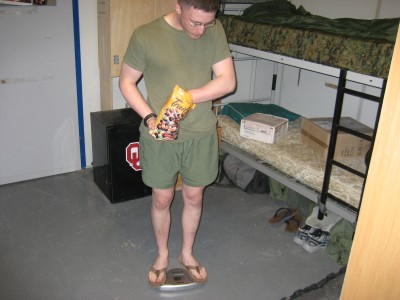Along with opening the site to reader submissions, I’ve asked various friends to contribute. Aaron is a PJ, or pararescue jumper, a Special Operations job in the Air Force where operatives are tasked with recovery and medical treatment of personnel in humanitarian and combat environments. His experience, attitude, and humor are unique and he can squat over 405. –Justin
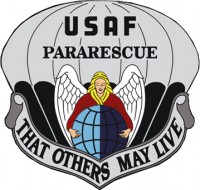 I’ve been in the military for 11 years. I joined the Air Force after spending some time bouncing around Ohio where I grew up. I was always good enough at sports to make the varsity team – I swam and played water polo – but I wasn’t good enough to pay for school or to make a living out of it. I wasn’t challenged enough by college to care to keep going. For about 8 months in the start of 2001, I talked to recruiters, asked what they could offer me, took some placement tests, and scored well enough to get my pick of jobs. I wasn’t sure I wanted to go in despite coming from a family heavily entrenched in military and civil service. I wasted a lot of time that year. Then September 11, 2001 came and went, and like so many other young men and women I was gone a month later.
I’ve been in the military for 11 years. I joined the Air Force after spending some time bouncing around Ohio where I grew up. I was always good enough at sports to make the varsity team – I swam and played water polo – but I wasn’t good enough to pay for school or to make a living out of it. I wasn’t challenged enough by college to care to keep going. For about 8 months in the start of 2001, I talked to recruiters, asked what they could offer me, took some placement tests, and scored well enough to get my pick of jobs. I wasn’t sure I wanted to go in despite coming from a family heavily entrenched in military and civil service. I wasted a lot of time that year. Then September 11, 2001 came and went, and like so many other young men and women I was gone a month later.
I chose the Air Force to try out for Pararescue, or PJ – a special operations job in the Air Force where operatives are tasked with recovery and medical treatment of personnel in humanitarian and combat environments. It’s arguably the hardest Special Operations job in the United States military. I was attracted by the difficulty, the attrition rate (more than 90% fail), and the mission. Saving lives, bringing home fallen Eagles, no matter the cost. “That others may live” is the motto. Small teams are asked to do impossible things only to succeed time and time again. It’s mentally challenging, physically demanding, and packed full of the world’s best training opportunities. It took all of 5 seconds for my recruiter to tell me about the job before I wanted to sign papers.
This is usually the point in the story where I tell you how I completed selection, realize my dreams, but it’s not. I failed the selection course for Pararescue, called “The Indoctrination Course”, or colloquially “INDOC”. I did not have the maturity, physical skills or mental preparedness needed to be a PJ, and I found that out in the harshest way over the course of my first year in the military. I love the saying, “failure is not an option.” I assure you, it most certainly is an option.
I spent 5 years in Washington, D.C. working a very cool but very “desk” job. I excelled, made a couple stripes, and was well set up for a very “easy” career in the Air Force. I loved the people I worked with, I loved the Air Force, and I loved my life. I even got married, had a baby – the whole deal.
At 3 a.m., on the night I graduated from Basic Army Airborne School, my wife looked at me as she held my then-three-week-old daughter, and said the one thing that changed all of our lives.
“It made you want to go back, didn’t it? Did jump school make you want to try INDOC again?”
I responded with some really pansy type, “Uh, babe, you know…”
“Shut up” was the only response from my wife. “Put the packet in. Let’s go back. But I am changing the locks on the doors, and you aren’t coming home to this family unless you pass. You can get your new keys at graduation. You are gambling on our lives here, and I won’t bet on anything but a sure bet. Let’s do this.”
Fast forward to now. 8 years after that conversation, I am a PJ with multiple combat deployments, and international SOF experience. I just returned from a deployment, and I am getting ready for the next one, as usual.
But now the question: why did I spend 300 words telling you this, and what does it have to do with 70’s Big?
Well, it has everything to do with it. Along my journey, a couple resounding truths kept my head right and kept me on the right track.
- You have to stand up, do the work, and grind out every day of your life. Some say, “Half of life is just showing up,” but the other half is putting out, and getting the work done. 50% is a failing score in real life; just showing up isn’t enough.
- The second you lose sight of item 1, someone will call you on it and you will pay a penalty. In my line of work, that could conceivably mean a serious injury or death – or the worst possible scenario, that I would be unable to answer the call when it comes. It seems as if I got those two consequences in the wrong order. Trust me, I didn’t.
These lessons were taught to me at the gym. Not during some “cool guy” combat scenario or during a movie-type scene; I learned these things under a bar. Trying to find a way to push into a max-effort set; showing up an hour early to make sure I get my mobility work in; getting up hours before the sun because I don’t have enough time in my day; or refusing to miss a weight or a progression. These lessons were taught to me in the most unforgiving fashion possible. The weight is constant and the entry in your journal for that day is a pass/fail event. Would you like to skip today’s workout, or mail it in and only do 75% of what you had programmed that day? That’s fine. Just realize you will not be strong and you’ve increased your chance of failing. If you are ok with that, well, I’m not sure we are going to get along.
Throughout my career I’ve loved learning and passing knowledge on. Long ago I saw the value of strength training and have never looked back. Three years ago I found my way to 70’s Big and saw a community of like-minded individuals and have been an avid follower since. When I was presented the opportunity to contribute in any way, I was amped.
So, here we are. Hopefully, I can contribute some quality articles. I want to bring my military and Special Operations experience as well as my experience coaching athletes of all shapes and sizes – males, females, special operators, intel officers, housewives and grandparents. Hopefully my experience can help make 70’s Big readers better.
If not, at least I “showed up”, and that’s at least worth half credit.
Aaron is a Pararescueman (PJ), a special operations job in the Air Force where operatives are tasked with recovery and medical treatment of personnel in humanitarian and combat environments. He spends his free time eating meat and repetitively moving heavy things.

